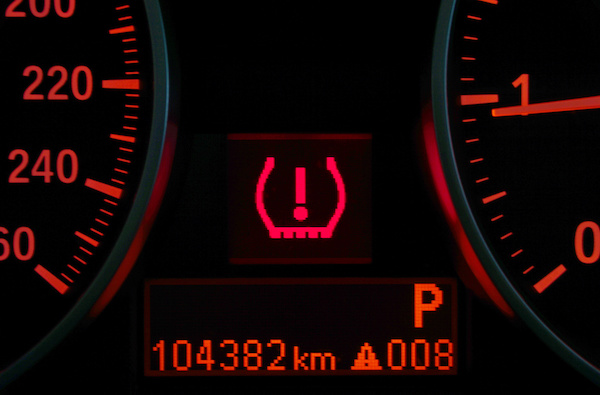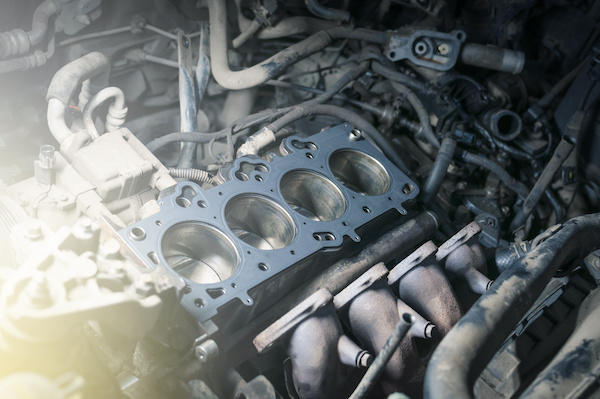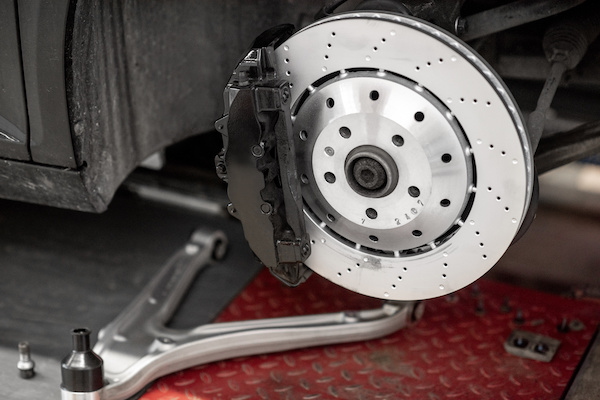Posted on 9/29/2022

Have you ever seen the TPMS light go on and wondered what it meant? You're in luck because today we'll tell you what it is and what it means for your car. What is TPMS? TPMS stands for Tire Pressure Monitoring System, so if you see TPMS light up on your dashboard, it means it's time to check your tire pressure. It lights up if there is a problem with your tires, so it is something that should not be ignored. What happens if it turns on? The TPMS light turning on usually shows a warning that you should investigate. Perhaps you haven't checked your tire pressure in a while and it finally got low. That's fine because you can just put air in it and call it a day. Here are the benefits of maintaining the tire pressure before it becomes a problem: You'll save money on new tires by finding the problem early Better handling of your car Regular tire rotation But here are a few problems that can show issues with your tires when the light turns on: Tires can be at ... read more
Posted on 8/30/2022
.jpeg)
Every machine comes with a note from the manufacturer. This note stipulates how the machine should be used, maintained, and stored for optimal performance. An automobile is no different. The instructions that accompany your vehicle are called Factory Recommended Services. While most car owners blissfully skip on these services for a while, there are multiple reasons why you shouldn't. Most car manufacturers follow a general 30-60-90 rule. The rule shows what needs to be inspected, repaired, or replaced every 30,000, 60,000, and 90,000 miles. Regular maintenance and replacing fluids and oils can start as early as 5,000 miles. Here are a few reasons you shouldn't ignore the manufacturer's maintenance schedule. Optimal Vehicle Performance A vehicle has many moving parts that need to be constantly and appropriately greased and oiled for that smooth glide. Additionally, it has a lot of rubber parts that will need to be replaced when they wear out. If, for example, oils are no ... read more
Posted on 7/27/2022

Your head gasket has to tolerate a lot of heat and pressure to do its job, and if your car overheats it can cause the head gasket to blow. Keeping your car routinely maintained by an expert technician ensures oil changes, coolant, and other fluids are in good supply can go a long way in preventing a head gasket leak. The head gasket is basically the device that prevents different chemicals from mixing in your engine and doing harm to your car. The main functionality of the head gasket is keeping an airtight seal preventing fluids from locking up the engine, causing a fire, or detonation. As your car ages, it's normal for the head gasket to lose efficiency, that's where automotive maintenance becomes important! A seasoned mechanic will spot the warning signs that it's time to replace your head gasket. Red Flags of a Head Gasket Leak There are lots of symptoms to identify a head gasket leak and this list is by no means comprehensive, but if you do think your car's eng ... read more
Posted on 6/29/2022

Imagine coming to a stop at a light or stop sign just to hear the most horrendous and loudest squeak. If your brakes are noisy after you’ve applied pressure to the brake pedal, it can mean one of three things. 1 - Rust and/or Dirt If your brakes have accumulated a lot of dust and debris, the brake rotors can develop rust if not washed off. Whenever you press on the brakes when they’re in this condition, the brake pads can scrape some of this off. Once the grime or rust is gone, it will return to normal. 2 - Moisture Braking in wet conditions, like high humidity, rain, or snow, can cause your brakes to make some noise. This tends to happen in early mornings when moisture builds up on your brake rotor overnight. The sound should go away once the moisture dries up. 3 - Worn Brake Pads Over time, as your car puts on miles, your brake pads will naturally wear down. These parts often have metal indicators that make an audible signal when they wear off. Each time you brake ... read more
Posted on 4/3/2022

How to Create a Winter Emergency Kit for your Car When it comes to an emergency, anyone can be affected. So keep the following supplies in your winter car kit to be prepared for the worst-case scenario (particularly critical in the winter). Whether you have run out of gas, punctured a tire, or fallen off a slick, snowy road, whatever the situation is, having a car emergency kit can help you get back on the road safely and efficiently. Apart from the items listed below, it is highly recommended that you have a cell phone on hand. Keep your phone charged every time you get into your car, and keep a spare cell phone charger and rechargeable battery pack in your emergency kit in case you need to use them both. List of Things to Have in Your Emergency Kit for Your Car In your trunk, keep the items listed below safe. Idealistically, we would recommend storing these items in a clear, plastic container so that they are easy to see and find. Make your own kit or purchase one that ... read more